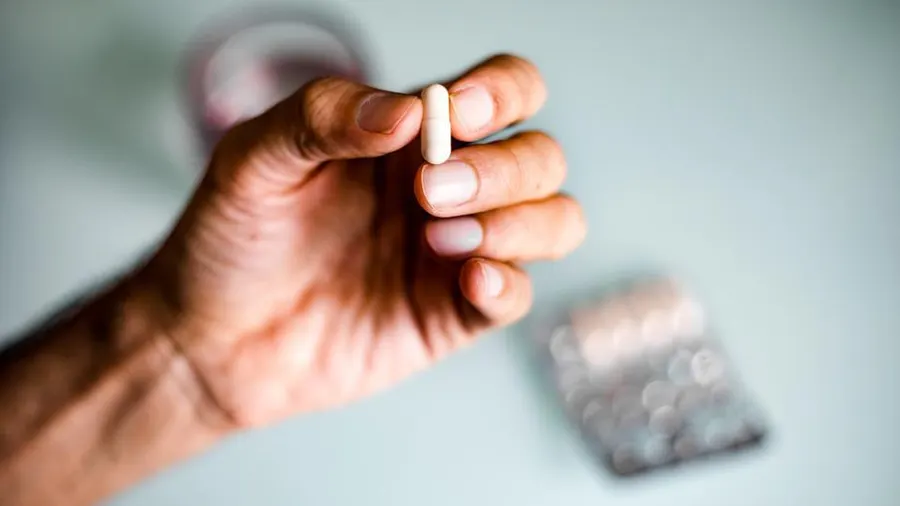The best probiotics for weight loss are well recognized to aid with weight loss. Probiotics are becoming more and more popular because of their many health advantages. For instance, because they boost the quantity of beneficial gut bacteria, they are excellent for digestion. Probiotics provide a number of health advantages, including helping with weight loss.
However, how exactly can probiotics aid in weight loss? Exist any unintended consequences? Is it possible to take probiotics without a prescription? We have every response you've been searching for. Continue reading!
Probiotics: What Are They?
Beneficial bacteria that reside in the human gut are called probiotics. To restore the bacterial growth in the stomach, they are given following an antibiotic course. These microbes are present in fermented foods like yogurt.
It's possible that probiotics don't immediately aid in weight loss. They do, however, strengthen elements that support weight reduction. To learn how they indirectly affect weight reduction, scroll down.
How Assist With The Best Probiotics For Weight Loss
1. Could Boost Digestive Well-being
According to studies, the best probiotics for weight loss replenish the digestive system with beneficial bacteria that balance out bad ones. They improve health by fermenting food. Constipation and other gastrointestinal pain that may otherwise compromise digestive health are reduced by the advantageous bacteria.
2. Could Aid with Diabetes Management
Research indicates a possible correlation between obesity and diabetes.
Data from the National Health Interview Survey (NHIS) covering the years 2016 to 2021 were examined and published in the Annals of Internal Medicine in 2023. 128,571 people who were not pregnant and older than 18 years old were included in the statistics. Results showed that 62% of individuals with type 1 diabetes were obese or overweight, which was comparable to the overall adult population's 64% proportion of these conditions.
Losing weight may thus lower the risk of diabetes. Patients with type 2 diabetes may have improvements in their insulin sensitivity and fasting blood glucose levels (the readings obtained after an overnight fast). Research indicates that probiotics may assist in lowering blood glucose levels in diabetics. Thus, probiotic bacteria of the akkermansia muciniphila type are employed in the treatment of type 2 diabetes. Patients with type 2 diabetes may also have improvements in their lipid profiles by taking probiotics that comprise Lactobacillus lactis and Bifidobacterium acidophilus. Additionally, the beneficial microorganisms could enhance glycemic control.
3. Burning Fat May Lower The Risk Of Obesity

Lactobacillus fermentum and Lactobacillus amylovorus are two probiotic bacterial strains that may help lower the risk of obesity by burning fat. According to recent research, lactobacillus fermentum can lower blood cholesterol. This might indirectly encourage weight loss and effectively lower the risk of obesity. Additionally, it was discovered that lactobacillus rhamnosus GGMCC, another probiotic strain, aids in weight reduction (although some other strains did not have the same effect). However, because probiotics vary in strain, it's possible that not all of them will have the same impact.
4. Could Diminish Inflammation
Inflammation may rise in response to a rise in body weight. Research indicates that a blend of several probiotic bacteria, including bifidobacterium lactis, lactobacillus gasseri, and lactobacillus casei DN001, may be beneficial in lowering inflammation. It has been discovered that lactic acid bacteria, or lactobacilli, increase the amounts of anti-inflammatory molecules. Inflammatory bowel illness may also be treated with probiotics such as bifidobacterium and streptococcus thermophilus.
5. Could Encourage Rest
Sleep deprivation may raise the risk of obesity, according to studies. Gut microorganisms affect sleep and mental well-being. Lactobacillus reuteri and Bifidobacterium adolescentis are two probiotic bacteria that may help enhance the quality of sleep. Consequently, better sleep might support weight reduction.
More precise study is necessary in this aspect, though.
Foods high in probiotics or supplements are two ways to consume probiotics. To view the list of foods that are high in probiotics, continue scrolling.
Natural Foods High in Probiotics
1. Yogurt
Foods fermented by lactic acid bacteria are called yogurts. It has been demonstrated that probiotic lactic acid bacteria are effective for gastrointestinal tract issues such as bloating and diarrhea. Yogurt, when included in a balanced diet, may also help with weight loss, according to anecdotal evidence. More investigation is need in this area, though.
2. Moist Cheese
A variety of gastrointestinal illnesses may be brought on by changes in the micro biota. You can control them by taking probiotics. The acidic environment in the gastrointestinal system is buffered by soft cheese. It creates the right environment for probiotic development.
3. Pickles

It's a fermented dish prepared using finely chopped cabbage. Probiotic lactic acid bacteria included in this pickle help to boost gut flora.
4. Kefir
Kefir is a beverage created from any type of fermented milk. Digestion is known to be improved by it. Moreover, it could regulate plasma glucose levels and combat inflammation and hypertension.
5. Kimcha
Kimchi is a classic Korean side dish prepared with fermented vegetables, mainly radishes and cabbage, and flavoured with various seasonings like gochujang. Lactic acid bacteria, which belong to genera like Leuconostoc and Lactobacillus, are the main probiotics in kimchi. Eating it might lower the chance of obesity and help create a more balanced gut flora, which would enhance immunity, improve digestion, and improve skin health.
6. Miso
Japanese condiment miso is made by fermenting soybeans together with additional components including rice or barley, salt, and koji. It has lactic acid bacteria and Aspergillus oryzae, two types of probiotics. It is well known that Aspergillus enhances the bacterial flora in the digestive tract, increasing digestion and promoting gut health, which can help with weight reduction. Conversely, lactic acid bacteria may enhance immunological response and alleviate symptoms associated with allergies.
All of these foods are the best probiotic for weight loss just eat them in moderation. If you have an allergy, stay away from them. You should also make sure you hydrate your body, have a healthy lifestyle, and get the recommended amount of exercise.
Prebiotics is another name frequently used in conjunction with probiotics. Prebiotics: what are they? What connection do they have to probiotics?
Read Also: Tips For Success On A Histamine low Diet
How Prebiotics and Probiotics May Help With Weight Loss
Prebiotics are nutrients found in food that humans cannot digest but which help to balance the micro biota in the stomach. They are a source of probiotic supplementation and encourage the growth of gut-friendly bacteria. Prebiotics include fibres with lower caloric content.
Prebiotic meals are high in dietary fiber and require more time to digest, according to certified clinical dietician Mary Wirtz. People who experience this feel fuller throughout the day, which aids in weight loss and maintenance.
Probiotics' Potential Hazards
Benefits of probiotics are quite strain-specific. Instead, Streptomyce aureofaciens may cause weight increase, according to research on animals. In certain people, probiotics can lead to excessive immunological activation, adverse effects on metabolic processes, and systemic infections. Therefore, only take probiotics as directed by a doctor.
Do Probiotic Supplements Safely Help People Lose Weight?

Probiotic supplements are safe to take for weight reduction, but you should only take them as prescribed by a doctor. Weight reduction with probiotics is strain-specific, as mentioned previously. So, ingesting them by itself might not be beneficial. Results may be obtained with a balanced diet, moderate activity, and probiotic use.
The best probiotics for weight loss improve gut flora and support digestive health, which aids in weight reduction. Probiotics are abundant in fermented foods. Probiotics lower inflammation, lower the risk of obesity, assist control diabetes, and improve sleep. Each of these shows promise in terms of weight loss. Probiotic-rich foods include kefir, soft cheeses, and sauerkraut. Nevertheless, there can be drawbacks to taking probiotics. They might lead to systemic infections, detrimental effects on metabolic processes, and excessive immunological activation. Therefore, it is recommended to take probiotics and vitamins under a doctor's supervision.
What are the best probiotics for weight loss?
The article in Nutrients that was previously cited states that strains of Lactobacillus and Bifidobacterium are among the most often employed in studies looking at the connection between probiotics and weight reduction, and they showed the most promising outcomes for weight loss.